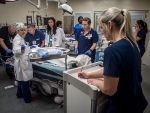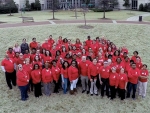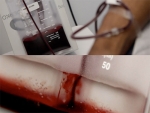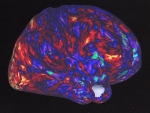Displaying items by tag: center for aids research
In a new trial led by the NIH, researchers will evaluate whether a long-acting medication will be beneficial for patients who are not normally consistent with medication.
UAB investigators hope the Emergency Department medication assisted treatment program will help curtail opioid use disorder.
NIH research funding to the UAB School of Medicine has increased by more than $100 million in the past five years, a barometer of the school’s success.
Tagged under
UAB invites you to Darwin Day: A Celebration of Science, which highlights how AIDS and malaria became prevalent in Africa and created a worldwide epidemic.
Tagged under
Experts have updated recommendations for the use of antiretroviral drugs in the treatment and prevention of HIV infection.
Tagged under
UAB has a new, quick way to learn about what’s happening on campus. Watch "UAB This Week" every Friday morning for the latest stories you need to know.
Tagged under
Local organizations fighting to end the spread of AIDS by 2030 will be a focal point at UAB’s World AIDS Day celebration.
A collaboration between Birmingham AIDS Outreach and the UAB 1917 Clinic looks to provide nutrition support and education to address and prevent the rise of chronic disease in patients living with HIV.
Tagged under
Leaders in HIV research and treatment gather at UAB to address laws that prohibit gay men from donating blood.
Tagged under
Tagged under
UAB partners with state agencies and organizations to aggressively decrease the spread of HIV/AIDS to the point of elimination of the spread of AIDS by 2030.
Tagged under
Adherence to care improves when youth with HIV receive education and help navigating the system, according to study out of UAB.
UAB researchers develop a conceptual framework to help progress the care of people living with HIV by looking at ways to pursue better engagement in care.
Tagged under
Bevan, Locke, Saag are among 12 speakers who will speak at the annual, independently organized event which will challenge attendees to embrace the event’s theme of possibility.
Tagged under
Tagged under
Scientists from around the world will gather at UAB in December to focus on HIV research and women, particularly collaborative research on women living with HIV and those at risk.
Tagged under
Antibody VRC01 proves safe for individuals infected with HIV-1 but only modestly controls the virus in participants who stop receiving antiretroviral therapy.
Tagged under
Computing challenges are found across the UAB campus, from physics and neurology to genetics and the microbiome. Alabama’s most advanced supercomputer is now at UAB, making it possible to solve these challenges.
Tagged under
Michael Saag, M.D., spreads message from first book to TEDxBirmingham attendees; says three lessons can help enact change.



















